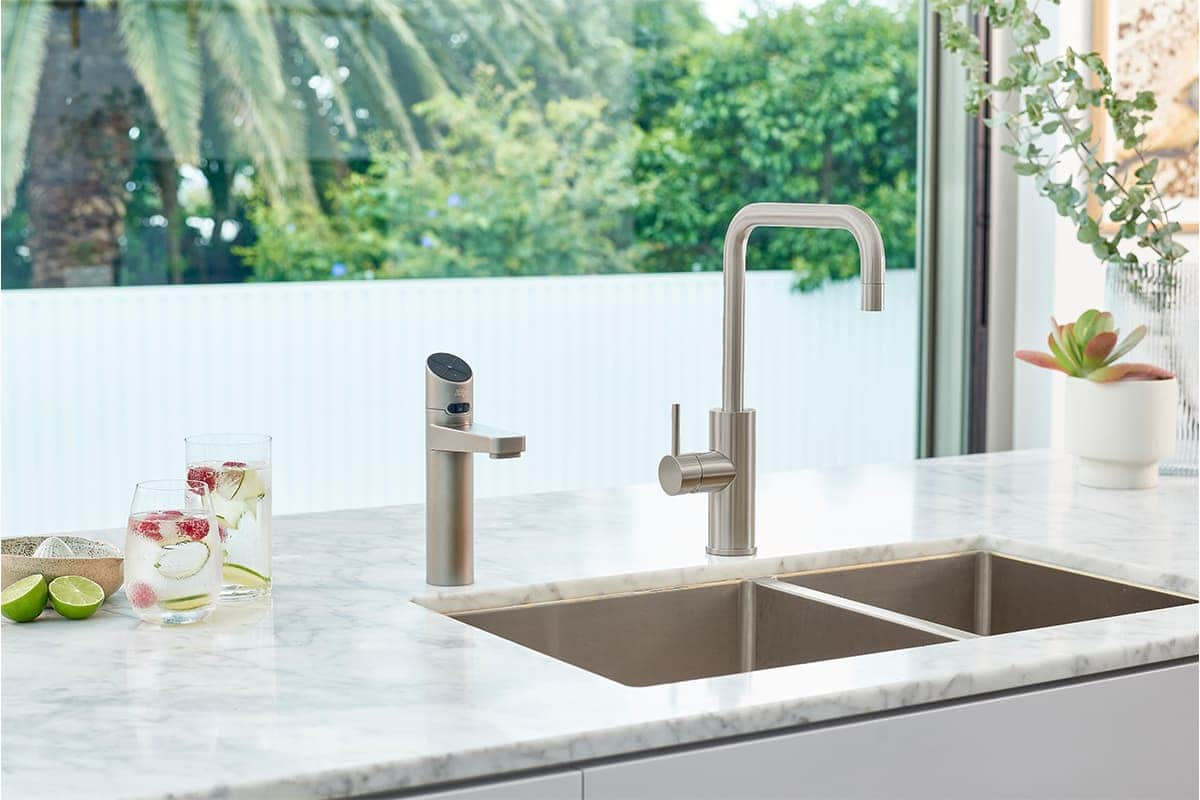The 7 major health repercussions of not drinking enough water
Health | 05-07-15

Drink up, people.
There are times when you crave a huge bottle of water – when you've just played an intense game of laser tag, or when your brother hilariously puts Tabasco on your sandwich, for example.
But there are definitely times when you'd prefer something a little different to water, like my cousin, who won't drink anything other than milk (seriously… even with pizza. It's weird).
I sit somewhere in the middle. I definitely don't drink enough water, but it's not because I don't want to. Most days I just forget, which is TERRIBLE.
When your mum told you as a child that you needed to drink more water, she wasn't lying. While she probably embellished the part that came after it – for me, it was ‘if you don't drink more water, all of your hair will fall out' – there are real health repercussions to skipping the H2O.
In the Mamamia Sydney office, we're lucky enough to have a Zip Hydrotap, with instant chilled and boiling water.
The company believes in “the Zip effect” – that is, that staying hydrated is the key to better overall health and well-being.
So drink up.
1. FatigueIt's the most common sign of dehydration, but how many of us wake up after eight hours of sleep, feel sluggish all day and then just blame it on a busy week at work? I'm so guilty of this. But it's not work's fault, it's you and your lack of water-drinking. Stop blaming your boss for your serious lack of energy.

“It's the most common sign of dehydration, but how many of us wake up after eight hours of sleep, feel sluggish all day and then just blame it on a busy week at work? “
2. Urinary Tract Infections.The most painful thing a person can ever experience – UTIs – can be brought on by so many things, but one of the main causes is not drinking enough water. I used to go all day without drinking water, and I'll never forget the day I asked a teacher if I could be excused from class because I had a UTI only to be refused. Anytime you feel like skipping your eight glasses a day, just remember how goddamn painful UTIs are. You'll be sculling water like nobody's business.
3. Kidney stones.
In case UTIs weren't enough to convince you to drink more water, kidney stones probably should be. The masses can get as big as golf balls and hurt more than anything you've likely experienced in your life. They're commonly caused by a lack of water. They usually pass by themselves, but the pain can be so bad that hospitalisation is required.

“I sit somewhere in the middle. I definitely don't drink enough water, but it's not because I don't want to. Most days I just forget, which is TERRIBLE.”
4. Cramps.Not enough water = stomach cramping. This one's like PMS, but so much worse. If you aren't putting enough water into your body, your muscles contract and cramp up.
5. Digestive problems.
By not drinking enough water, your body can't digest your food properly. You know what this leads to? Serious. Constipation. Along with bloating, gas, nausea and an inability to eat. And nobody wants that.

“You know what this leads to? Serious. Constipation. Along with bloating, gas, nausea and an inability to eat. And nobody wants that.”
6. Stomach ulcers.
It's not super common, but stomach ulcers can absolutely develop if you're dehydrated. It's all to do with the acidity in your stomach, which is usually protected by the water you're supposed to drink. When there's no protection, this can result in heartburn and other digestive issues that then turn into stomach ulcers – all from not drinking enough water. Sounds crazy, but it's very true.
7. Death.
Okay, so this last one is extreme, sure, but it's accurate. Bad dehydration can lead to serious health issues like seizures, brain swelling and, in severe cases, even death. Nothing's worth your life, so put the cider down and have a glass of water instead.
But don't worry, you guys. There's an easy fix for all of these things. Just. Drink. More. Water. It's that simple.
How do you try to drink more water? Let us know below.
Article written by Caitlin Stower for Mamamia.
http://www.mamamia.com.au/wellbeing/reasons-to-drink-more-water/#mfVv7ZHKiRuhT0kT.99
























